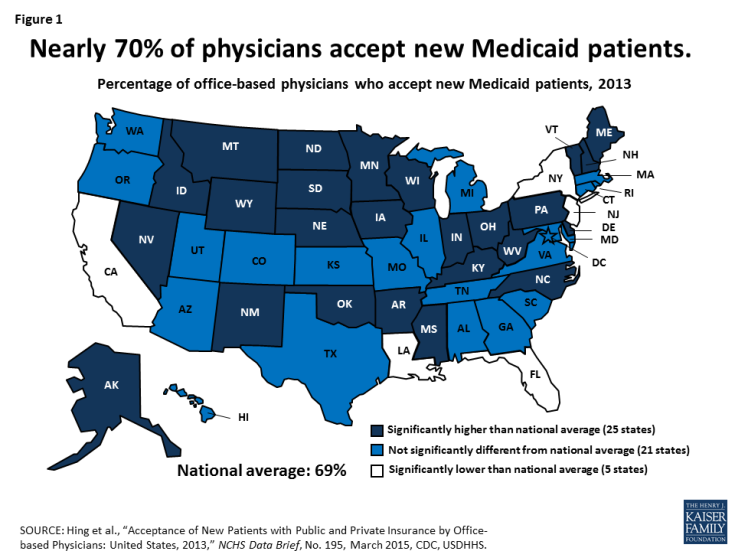Data Note: A Large Majority of Physicians Participate in Medicaid
About 70% of all office-based physicians accept new Medicaid patients, including two-thirds of primary care physicians and close to three-quarters (72%) of specialists. The percentage of physicians accepting new Medicaid patients varies by state, ranging from 39% in New Jersey to 97% in Nebraska (Figure 1). Overall, about 85% of physicians accept new privately insured patients, but this rate also varies by state, ranging from 57% in the District of Columbia to 95% in Illinois. In one-quarter of states (14), more than 85% of physicians accept new Medicaid patients, including 10 states where at least 90% do. Physician participation in Medicaid is generally highest in the most rural states. In the 11 states where at least half the population lives in rural areas, the median Medicaid physician participation rate is 90%, compared to 71% in the 25 states where less than one-quarter of the population is rural. In many states, the responsibility for ensuring adequate physician participation in Medicaid rests largely with managed care plans, which serve a growing majority of Medicaid beneficiaries. There is no evidence that physician participation in Medicaid is declining. In a 2015 survey, 4 in 10 primary care physicians who accepted Medicaid reported seeing an increased number of Medicaid patients since January 2014, when the coverage expansions in the Affordable Care Act took full effect.

